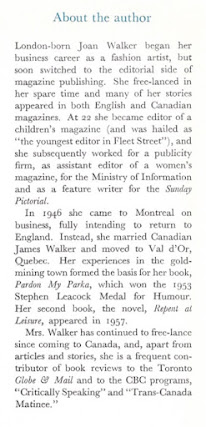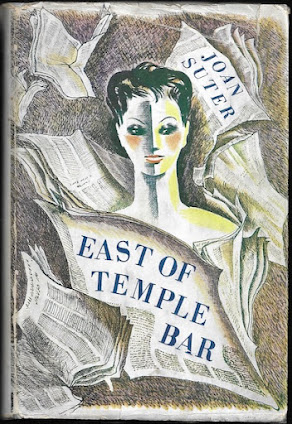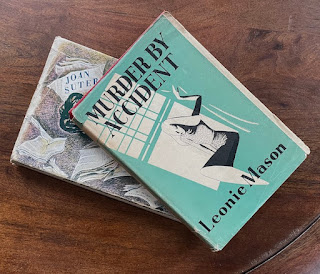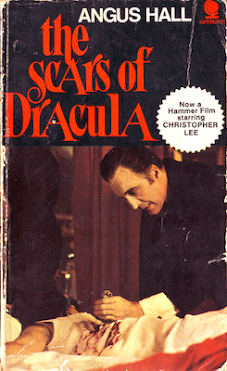Over the boughs that the wind has shaken,Over the sands that are rippled with rain,Over the banks where the buds awakenCold cloud shadows are spreading again.All the musical world is still,When sharp and sudden, a sparrow calls,And down on the grass where the violets shiver,Through the spruce on the height of the hill,Down on the breadths of the shining riverThe faint snow falls.Last weak word of a lord that passes—Why should the burgeoning woods be mute?Spring is abroad in the spiring grassesLife is awake in the robin's flute.But high in the spruce a wind is wailing,And the birds in silence arise and go.Is it that winter is still too nearFor the heart of the world to cast out fear,When over the sky the rack comes sailingAnd suddenly falls the snow?
01 April 2022
Ten Poems for National Poetry Month, Number 1: 'Snow in April' by Marjorie Pickthall
21 March 2022
Joan Suter, Angus Hall, and the Collector in Me
 |
| Marriage of Harlequin Joan Walker Toronto: McClelland & Stewart, 1962 |
And then there's this, which may frighten some readers:
14 March 2022
The Dustiest Bookcase: V is for van Vogt
A.E. van Vogt
New York: Signet, 1958
160 pages
The Dustiest Bookcase series is meant to highlight books I've had forever, and have always meant to read and review, but haven't. Destination: Universe is a cheat. It was given to me just last year by someone who knew I liked vintage paperbacks. The pages are loose, the cover is more than scuffed, and still I'm happy to have it, despite my previous encounters with the author.
In the fourteen-year history of the Dusty Bookcase, I've given van Vogt two kicks at the can. I was first dawn into his orbit in by the 1952 Harlequin cover of The House That Stood Still.
(In all seriousness, WTF, Harlequin?)
I disliked The House That Stood Still so much that I included it in my book The Dusty Bookcase. Then gave van Vogt a second chance with Masters of Time, about which I remember nothing. This old review suggests I was unimpressed.
Not really.


















